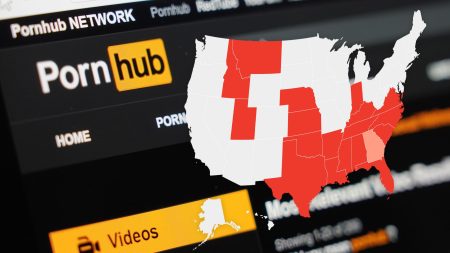The UK is bracing for a double blow to household energy bills this year, despite promises from Labour leader Sir Keir Starmer to improve the financial situation for families. The first blow landed with a 1% increase in the energy price cap, raising the typical annual bill from £1,717 to £1,738. This modest increase is only a precursor to a significantly larger anticipated rise in April. Analysts at Cornwall Insight have revised their spring forecast upwards, predicting a near-3% jump, further exacerbating the financial strain on struggling households. This projection paints a stark contrast to Labour’s pre-election claims of achieving £300 lower energy bills by the end of the decade, a promise now overshadowed by the impending increases.
The impending rise in energy bills has fueled political debate and criticism. Conservative Shadow Energy Secretary Claire Coutinho attributed the projected increases to Labour’s “reckless net zero plans,” orchestrated by Shadow Climate Change and Net Zero Secretary Ed Miliband, arguing that these ambitious environmental policies will ultimately burden consumers with higher costs. This accusation comes as Prime Minister Rishi Sunak pledges to prioritize raising living standards, emphasizing his commitment to putting “more cash in your pocket.” However, critics have challenged this commitment, citing Labour’s proposed £40 billion tax increases outlined in the October Budget, arguing that such measures would counteract any efforts to boost household incomes.
The debate over household finances extends beyond energy bills to encompass broader economic policies. The increased national insurance contributions for employers, a consequence of the October Budget, are anticipated to have ripple effects on workers, potentially impacting wages and job security. Furthermore, the discontinuation of the winter fuel allowance for ten million older people has drawn criticism, particularly as it affects a vulnerable demographic during the colder months. Shadow Chancellor Mel Stride echoed these concerns, accusing Labour of delivering “change for the worse” rather than the promised improvements.
Amidst the economic anxieties, Sir Keir Starmer has emphasized the upcoming 80th anniversaries of VE Day and VJ Day as opportunities for national unity and reflection. He highlighted these historical milestones as “wonderful moments” to commemorate a pivotal generation and draw inspiration from their resilience. These calls for unity, however, coincide with growing public concerns over the rising cost of living, casting a shadow over the celebratory atmosphere.
The looming energy price hikes underscore the complex interplay between economic policy, environmental goals, and political rhetoric. While the government emphasizes its commitment to improving living standards, critics argue that proposed tax increases and the rising cost of energy will negate any potential gains for households. The debate over how to balance economic growth, environmental sustainability, and social welfare remains a central challenge for policymakers, with families facing the immediate consequences of these difficult choices. The contrasting narratives – promises of improved living standards versus warnings of increased costs – leave households grappling with uncertainty and anxiety about their future financial well-being.
The situation underscores the vulnerability of households to fluctuating energy prices and the complexities of navigating competing policy priorities. As families brace for the anticipated April price hike, the focus remains on finding sustainable solutions to address the rising cost of living, particularly in the energy sector. The political discourse continues to revolve around assigning responsibility for the current predicament and proposing solutions, while households await tangible relief from the financial pressures they face. The challenge lies in balancing ambitious environmental goals with the immediate need for affordable energy and improved living standards, a delicate balancing act that will continue to dominate political and economic discussions in the months to come.











